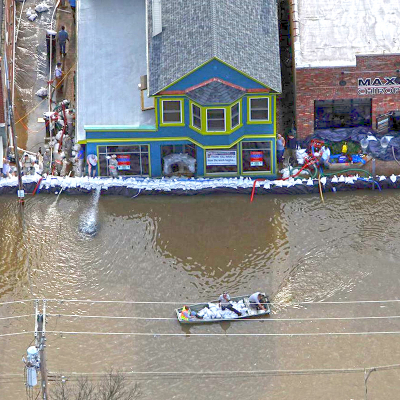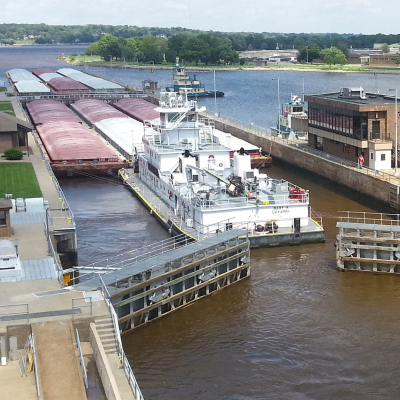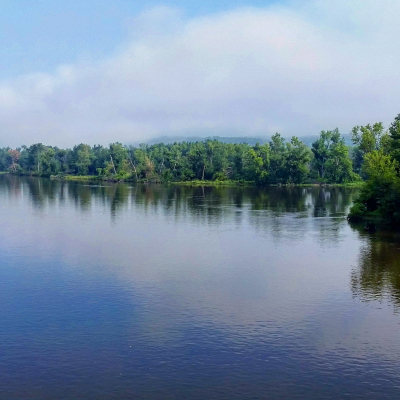The goal of UMRBA's interstate water quality program is to advance its member states' shared commitment to protecting and improving the water quality of the Upper Mississippi River. In light of rising chloride levels throughout the basin and the associated impacts to the basin's waterbodies, UMRBA has initiated a particular focus on chloride management, science, and communications.
Long term state monitoring programs show chloride concentrations have been rising for several decades – at least by 35 percent throughout the basin from 1989 to 2018. Winter de-icing salt application and municipal wastewater treatment discharge into surface waterbodies throughout the Upper Mississippi River watershed are resulting in rising chloride levels. Elevated chloride levels can harm aquatic ecosystems, mobilize other contaminants, and corrode infrastructure.
USEPA has declared that chloride concentrations greater than 230 mg/L (chronic exposure) and 860 mg/L (acute exposure) impact aquatic organisms and the ecosystem by interfering with osmoregulation, inhibiting vegetation growth, impairing reproductive cycles, salinizing soils and groundwater, and ultimately reducing the biodiversity in a waterbody. Chloride contamination mobilizes metals and nutrients in soils and pavements, corrodes infrastructure (e.g., roadways), and accelerates rusting of automobiles.
Existing solutions for reversing chloride contamination are limited and expensive. Therefore, there is a greater focus on reducing the input of chloride into the waterbodies. Road salt application techniques exist that minimize chloride runoff while ensuring public safety and substantially reducing winter road maintenance costs for municipalities, cities, states, and private applicators. As an example, Minnesota’s Smart Salting program (applicator training and certification for private contractors) shows that strategic applications can reduce road salting rates by 30 percent to 70 percent in the Twin Cities Metro Area.
UMRBA Chloride Resolution
In 2022, UMRBA adopted a resolution committing to facilitating cooperative action among state and federal water quality and transportation agencies, local governments, and private salt applicators to reduce rising chloride contamination in the Upper Mississippi River Basin and to improve our understanding of chloride impacts in the basin. The resolution describes long term trends, impacts, and current management efforts and calls for a robust set of strategies to accelerate efforts to reduce chloride loading, improve our understanding of chloride impacts, and communicate the issues and management challenges and opportunities.




